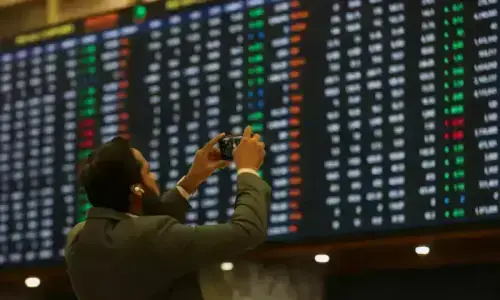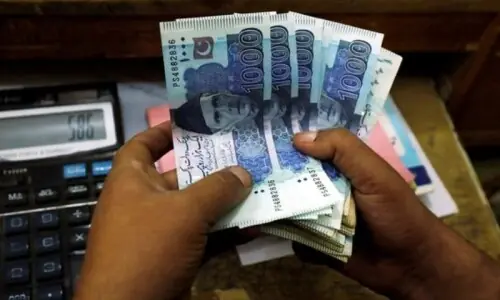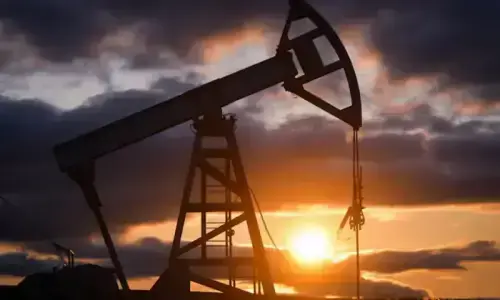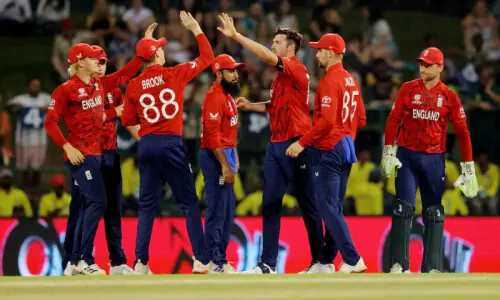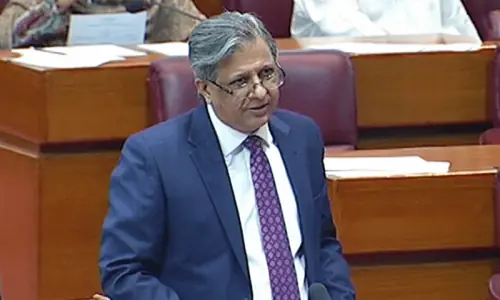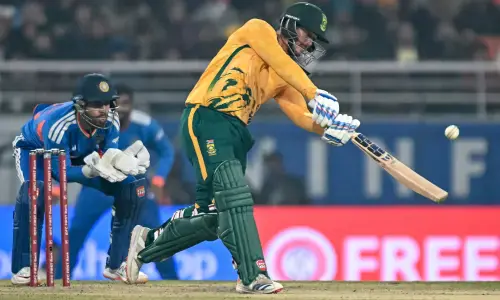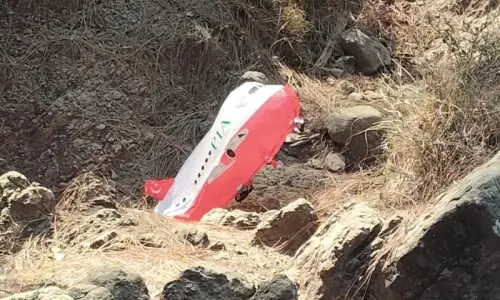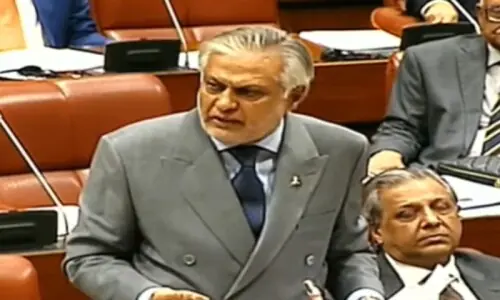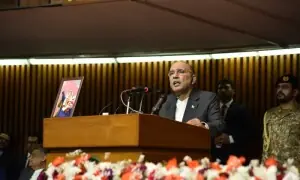
THE year 2014-15 marked a big ‘milestone’ for one of the largest gas production companies in the country, Mari Petroleum.
Lt. Gen. Nadeem Ahmed, Mari Petroleum’s (MPCL) CEO, says the year has been of significance as it marked the end of the restrictive Mari gas wellhead price agreement (GPA). The formula has been revised from the cost-plus wellhead model to one that is linked to international crude oil prices. The company has a 16.2pc share in the country’s total gas reserves.
“The cost-plus operating arrangement under the GPA may have provided a protective umbrella to MPCL but it had also taken away the corporate incentive of operating on a commercial basis like other exploration and production (E&P) companies.
“Under the old agreement, MPCL’s exploration losses were underwritten by the government. Now with industrial exposure, the company will face the risk of failure but will also have greater rewards for success.”
Earlier ‘Mari Petroleum’s exploration losses were underwritten by the government. Now with industrial exposure, it will face the risk of failure but will also have greater rewards for success’
The company owns the production lease and is the operator of the country’s second-largest natural gas reservoir, Mari gas field in Sindh. The gas produced by the company is supplied to fertiliser manufacturers, power generation companies and gas distribution companies. Mari operates 11 E&P assets and maintains partnership with national and international companies in six non-operated blocks.
For Mari’s shareholders, the revised formula retains the cap on dividend distribution (a minimum of 30pc) for the next 10 years.
“Whereas an improved pricing mechanism was well received, the cap on dividends has roped in the excitement for the Mari stock,” said Foundation Securities energy analyst Nauman Khan.
Hasan Raza at Alfalah Securities sees this as slightly positive. “[The company’s] cash balances will surge, which will beef up its bottom line”. He adds that the company has successfully drilled two development wells while drilling on a third development well is in progress.
The company’s management admits that efforts are being made to mitigate and manage the risks that are inherent in the E&P business, particularly the one that relates to the dismantling of the GPA.
“The successful transition from operating on a cost-plus basis to operating on market-oriented terms will remain a huge challenge,” the company says in one of its reports. As a result of the dismantling of the GPA, its revenues have now been directly linked with international crude prices, it adds.
“A decline in crude prices will cause a decline in the company’s revenue and consequentially a reduction in profitability.”
“Under the previous pricing arrangement, the company was guaranteed a fixed return on its equity based on its gas production. Its profit and loss account was prepared using a bottom up approach in which all expenses, such as interest cost and exploratory expenses etc, were added back to compute net revenues,” explains an energy expert.
“As a result, its realised gas prices remained artificially depressed. And while it charged higher rates from its customers — fertiliser plants, Wapda and generation companies — the differential in the realised prices and the prices charged from customers was pocketed by the government in the form of various taxes and surcharges, like the GIDC, GDS and the GST,” he claims.
The Fauji Foundation has a majority shareholding in MPCL at 40pc, giving it management control. It is followed by the Oil and Gas Development Company with a 20pc stake and the government with 18.2pc of equity in the company. The government had divested half of its 40pc original stake in the company to the general public in 1994. The public currently holds 21.6pc shares of MPCL.
The company has a small equity base of Rs1.1bn. The Mari stock was trading at around Rs482 a share last Friday. The company’s market capitalisation amounted to Rs52bn on June 30, while its total assets were valued at Rs66bn.
A couple of months ago, Mari’s shareholders approved a resolution calling for distribution of Rs9.7bn in specie dividend against the company’s un-distributable profit and loss balance at June 30, 2014, in the form of non-voting, non-cumulative, redeemable preference shares.
Another major development during 2014 was the approval of a five-year extension in Mari’s lease. “This means that the company will have the development and production rights in the lease area till 2019,” said one analyst.
The extension will enable Mari to enhance recovery and produce more natural gas from the area, and its CEO adds that the lease can be further extended by 10 years under the prevailing statutory regime.
Published in Dawn, Business & Finance weekly, November 23rd, 2015

